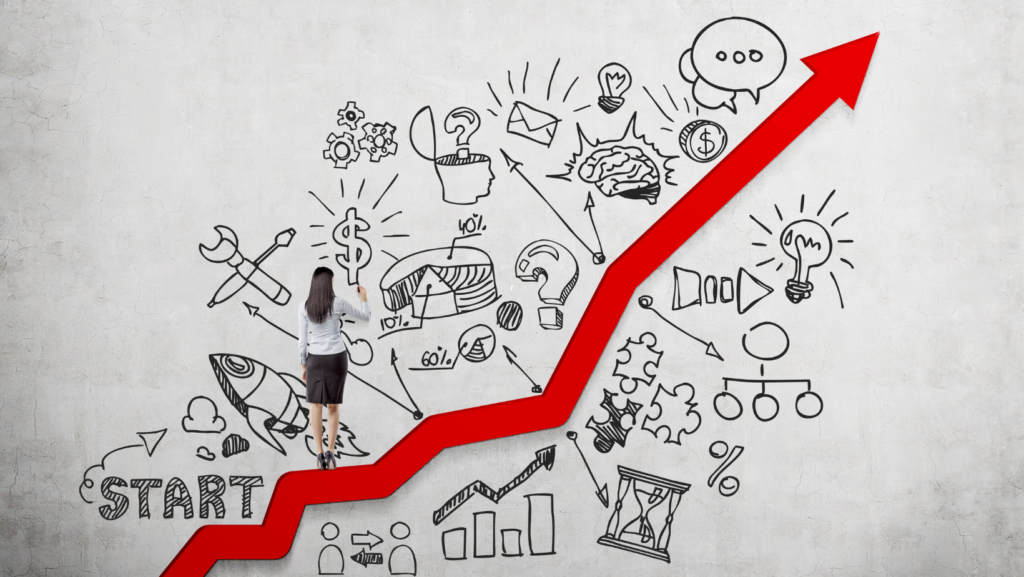Personal growth is a transformative journey that empowers individuals to reach their fullest potential. It’s a continuous process where people develop new skills, enhance their self-awareness, and improve their overall well-being. In today’s fast-paced world, personal growth has become more crucial than ever, as it helps individuals adapt to changes and overcome life’s challenges.
Examples Of Personal Growth
Personal growth involves changes that lead to self-improvement and expanded capabilities. It creates pathways for learning, choice-making, and life enhancement.
Definition and Importance
Personal growth refers to self-improvement through developing skills, beliefs, and relationships. It’s crucial as it aids in adapting to life’s shifts, enhancing emotional intelligence, and achieving set goals. Growth fosters resilience and opens opportunities, enriching personal and professional life. Progress comes through conscious efforts in learning and emotional development, making it a vital aspect of personal transformation.
Common Misconceptions
People often think personal growth targets only career enhancement, but it spans various life domains. Another belief is it’s for those facing adversity, while, in truth, everyone can benefit from growth. Many assume it occurs only through dramatic changes, yet even small, consistent improvements contribute significantly. Personal growth isn’t age-restricted; learning and adapting continue throughout life, given the right mindset and dedication.
Emotional Growth

Emotional growth plays a crucial role in personal development, enabling individuals to navigate life’s complexities. Through emotional growth, people enhance their emotional intelligence and resilience, leading to more fulfilling experiences.
Developing Emotional Intelligence
Developing emotional intelligence involves understanding and managing one’s emotions while empathizing with others. Recognizing emotional triggers helps people respond thoughtfully rather than reacting impulsively. Heightened self-awareness enables better interpersonal communication, fostering deeper connections. As individuals improve emotional intelligence, they become adept at handling conflicts and nurturing relationships.
Building Resilience in Tough Times
Building resilience strengthens a person’s ability to cope with adversity. Resilience enables them to adapt and bounce back from setbacks. Embracing challenges as opportunities for learning enhances problem-solving skills. Individuals who build resilience cultivate a positive mindset and find constructive ways to deal with stress. With strong resilience, they maintain well-being and continue progressing despite tough times.
Intellectual Growth
Intellectual growth plays a vital role in personal development. It entails expanding one’s knowledge, enhancing critical thinking, and fostering open-mindedness.
Lifelong Learning Practices
Lifelong learning practices are essential for intellectual growth. Individuals often engage in continuous education through diverse methods, such as online courses, attending seminars, or updating skills relevant to their professions. Reading books across different genres and participating in discussions can broaden perspectives. By seeking new knowledge regularly, individuals not only adapt to changes but also stimulate intellectual curiosity, which fuels personal growth and development.
Social Growth
Social growth enhances interpersonal interactions and fosters meaningful connections. It involves improving communication skills and building stronger relationships that enrich personal and professional lives.
Improving Communication Skills
 Refining communication skills is central to social growth. Active listening helps individuals understand conversational cues, enhancing dialogues with coworkers and friends. Improving non-verbal communication, like maintaining eye contact and appropriate gestures, boosts interpersonal effectiveness. Public speaking courses or workshops offer structured environments for practicing these competencies.
Refining communication skills is central to social growth. Active listening helps individuals understand conversational cues, enhancing dialogues with coworkers and friends. Improving non-verbal communication, like maintaining eye contact and appropriate gestures, boosts interpersonal effectiveness. Public speaking courses or workshops offer structured environments for practicing these competencies.
Building Stronger Relationships
Building stronger relationships contributes significantly to social growth. Engaging in shared activities creates bonds and strengthens networks. Consistent emotional support and effective conflict resolution nurture trust among family and colleagues. Regular interaction within community groups facilitates the development of empathy and mutual understanding, essential components of enduring relationships.
Professional Growth
Professional growth plays a pivotal role in enhancing an individual’s career trajectory. It involves setting clear career goals and embracing adaptability to excel in a dynamic work environment.
Embracing Change and Adaptability
Incorporating adaptability skills is essential for navigating the ever-evolving professional landscape. Organizations continuously face technological advances and market shifts, requiring individuals to embrace change and enhance their versatility. Adaptability involves quickly learning new processes, acquiring relevant skills, and responding effectively to challenges. Professionals who adapt successfully support their personal growth and contribute positively to organizational objectives.
In Conclusion
Personal growth is an ongoing journey that touches every aspect of life. By embracing emotional, intellectual, social, and professional growth, individuals can navigate life’s complexities with resilience and adaptability. This journey isn’t just about overcoming challenges but also about seizing opportunities for self-improvement.  Through learning new skills, enhancing emotional intelligence, and fostering meaningful connections, anyone can unlock their full potential. The path to personal growth is unique for each individual, yet it’s universally beneficial. With dedication and the right mindset, personal growth becomes a lifelong pursuit, enriching lives and opening doors to new possibilities.
Through learning new skills, enhancing emotional intelligence, and fostering meaningful connections, anyone can unlock their full potential. The path to personal growth is unique for each individual, yet it’s universally beneficial. With dedication and the right mindset, personal growth becomes a lifelong pursuit, enriching lives and opening doors to new possibilities.



